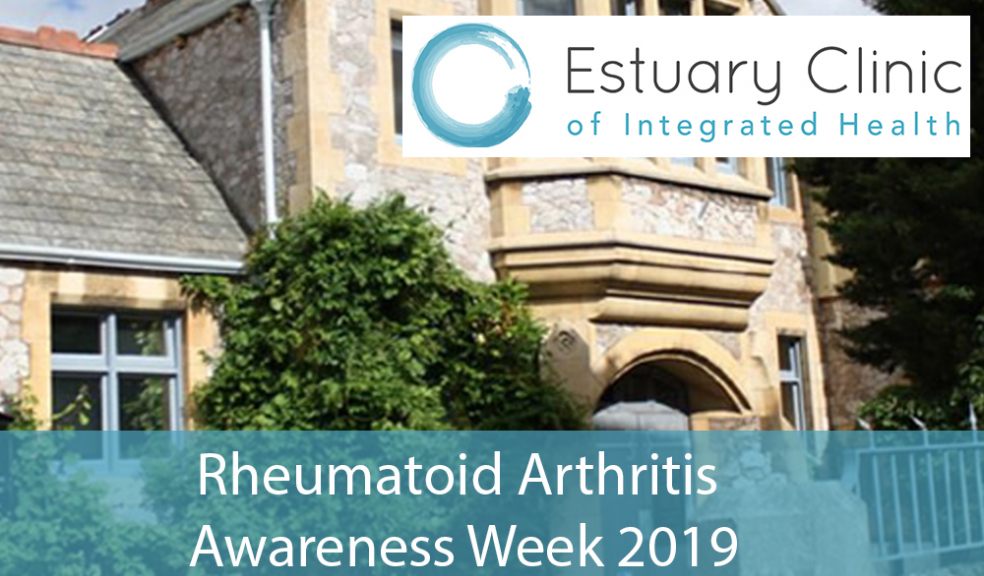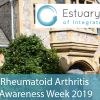
Estuary Clinic Osteopaths support Rheumatoid Arthritis Awareness Week 2019
Rheumatoid Awareness (RA) Week takes place between June 17th and 23rd. This is an annual event to raise awareness about the condition. The week provides an opportunity to understand RA more clearly and what impact it has on peoples lives.
With this in mind Estuary Clinic we will be sharing how Osteopathy may be able to help. Although this article will be focusing on how Osteopathy can help, Estuary Clinic provides a whole host of other services that may benefit Rheumatoid Arthritis sufferers. This includes (but not limited to) Acupuncture, Physiotherapy, Podiatry, Nutritional Therapy to Mindfulness.
What is Rheumatoid Arthritis?
Rheumatoid arthritis is an autoimmune disease. This means our own immune system becomes dysfunctional, causing it to attack the cells of our joints. This results in joint swelling, stiffness and pain. In time this can lead to joint deformities due to progressive damage to our joint cartilage or bones.
The exact onset of the condition is not fully understood, but you are at increased risk if you are female, smoke or have a family history of the condition.
Unfortunately there is no cure for the condition. But early diagnosis and appropriate treatment can greatly improve ones quality of life.
The National Institute for Health and Clinical Excellence (NICE) has produced guidance for the management of rheumatoid arthritis in adults.
The main aims of treatment are:
- To relieve symptoms including fatigue, pain, swelling and stiffness
- To decrease the disease activity as much as possible so as to prevent joint damage
- To minimise any disability caused by pain, joint damage, or deformity
- To treat other symptoms of the disease if they develop
- To reduce the risk of developing associated conditions such as cardiovascular disease or osteoporosis
- Provide support to help you live as active a life as possible
- Preserve quality of life
Treatment options
Main treatment options include:
Medication - this focuses on reducing symptoms and slowing the progression of the disease.
Supportive treatments - These include physical or manual therapies such as osteopathy to help keep you mobile and find ways around any problems you have with daily activities.
Surgery - In some cases surgery may be warranted to correct joint deformities.
Osteopathy as a supportive treatment
Osteopathy is manual therapy. Of all the many manual therapies that exist Osteopathy has amongst the largest repertoire of techniques. Such techniques include soft tissue release, myofascial release, high velocity low amplitude thrust (HVLAT), visceral release, cranial-sacral release, mobilisations and more.
The techniques used during treatment are chosen based on the individual complaints. In the case of Rheumatoid Arthritis some high intensity techniques such as (HVLAT) are avoided or contraindicated due to the possible structural changes that may have occurred.
Treatment is also generally avoided during a flare up where the joints are acutely inflamed. Having said this some comfort may be provided through lower threshold techniques such as myofascial release.
Once a flare up has passed with reduced joint inflammation, gentle joint mobilising and soft tissue stretches can be applied to restore the joints movement. A full assessment is also carried out to identify any poor or compensatory movement patterns that may have resulted from pain. If left unchecked these movement patterns can potential put more load on the joints in the body.
If you wish to know more on how osteopathy can help you, feel free to book in for a Free 30 minute consultation with one of our osteopaths! For more information on how osteopathy can please visit https://estuaryclinic.co.uk/osteopath-exeter-devon/














